Blogs
Automotive Insights: Expert Advice & Exceptional Deals
Explore expert insights, exclusive lease deals, and car buying guides—all without the dealership pressure. Stay informed and drive smarter with our trusted automotive blog.
Blogs
Automotive Insights & Exclusive Deals
Access special pricing arrangements and limited-time offers not available to the general public.
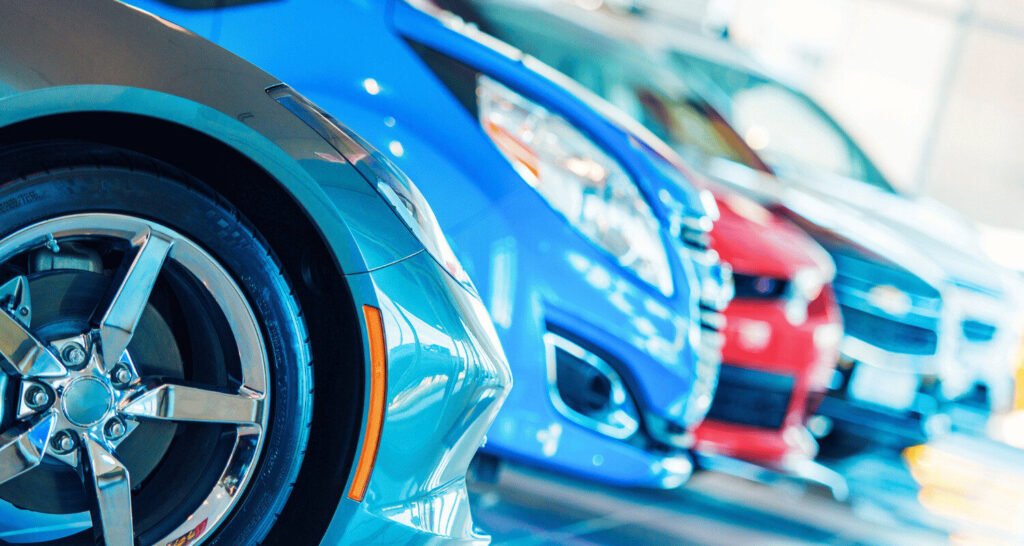
If you’re getting a car, you’ve got two main choices: Leasing vs Buying a Car. Both options can work, but which one is better depends on your needs, your budget, and how you plan to use the car.
This guide breaks it down with simple facts, real pros and cons, and no confusing words.
What’s the Difference Between Leasing and Buying?
Leasing a Car:
When you lease a car, you’re renting it from the dealership for a set time — usually 2 to 4 years. You make monthly car payments, just like a loan. But at the end of the lease, you give the car back. You don’t own it.
Buying a Car:
When you buy a car, you either pay cash or take out a loan. You also make monthly payments, but once it’s paid off, the car is yours. You can keep it, sell it, or trade it in.
Pros and Cons of Leasing
Pros:
- Lower monthly payments
Lease payments are usually lower than loan payments for the same car. - Drive a new car more often
Leasing lets you upgrade to a new car every few years. - Fewer repair costs
Most leased cars are under warranty, so major repairs are covered. - No resale hassle
You return the car at the end of the lease and walk away.
Cons:
- You don’t own the car
You’re paying to use it, not to keep it. - Mileage limits
Leases have mileage caps, usually around 10,000–15,000 miles per year. Go over, and you pay extra. - Extra fees
You may pay fees for wear and tear, early lease termination, or going over miles. - No equity
Once the lease ends, you don’t have a car or trade-in value.
Pros and Cons of Buying
Pros:
- You own it
After the loan is paid off, the car is yours. - No mileage limits
Drive as much as you want without fees. - More flexible
You can modify the car, sell it, or keep it as long as you like. - Better long-term value
You build car ownership equity, and once it’s paid off, you’re free of payments.
Cons:
- Higher monthly payments
Buying usually costs more per month than leasing the same car. - Upfront costs
Down payments and taxes can be higher when you buy. - You handle repairs later
Once the warranty runs out, repairs are your responsibility. - Car value drops
New cars lose value fast. That’s normal with auto financing options, but it can be frustrating.
Monthly Car Payments: What’s the Real Cost?
People often pick leasing because the monthly payments are lower. But that doesn’t always mean it’s cheaper.
Example:
- Lease: $300/month for 3 years = $10,800
- Buy: $500/month for 5 years = $30,000 (but you own the car after)
With a lease, you keep making payments every few years if you want to drive a new car. With buying, the payments stop once the car is paid off — and then you can drive it payment-free for years.

How Long Do You Plan to Keep the Car?
This is a key question. If you like having a new car every 2–3 years, leasing might make sense.
But if you want to drive the same car for a long time and avoid future payments, buying is the better choice.
Leasing Mileage Limits: Why It Matters
When you lease a car, the contract includes mileage limits. Most are between 10,000 to 15,000 miles per year. If you go over, you’ll pay about 15–25 cents per mile.
Let’s say you go 5,000 miles over — that’s $750–$1,250 extra. So if you drive a lot for work or travel, leasing may not be the best fit.
Can You Buy the Car at the End of a Lease?
Yes. Some lease deals include a buyout option at the end. This means you can buy the car for a set price listed in your contract.
This can work well if:
- You love the car and want to keep it
- The buyout price is lower than market value
- The car’s in good shape
But always check the numbers. Sometimes it’s cheaper to buy a similar car elsewhere.
Maintenance and Repairs: Who Pays What?
In most car lease contracts, basic maintenance is your job — oil changes, tire rotations, and so on. Major problems are usually covered under warranty.
If you buy a car, the first few years are covered under warranty too. But after that, repairs come out of your pocket. This can get expensive over time.
Insurance Costs
Insurance can be slightly higher for leases because the leasing company may require more coverage. But the difference isn’t huge. Always shop around to get the best rate.
So, Which One Is Better — Leasing or Buying?
There’s no one-size-fits-all answer. Here’s a quick way to decide:
| Choose Leasing if you: | Choose Buying if you: |
| Want lower monthly payments | Want long-term savings |
| Like driving new cars often | Plan to keep the car for 5+ years |
| Drive less than 15,000 miles/year | Drive a lot each year |
| Don’t want to deal with selling | Want full control and ownership |
FAQs – Leasing vs Buying a Car
Q1: Is it better to lease or buy a car?
It depends. Lease if you want lower payments and new cars. Buy if you want long-term savings and ownership.
Q2: What are the main differences between leasing and buying?
Leasing is like renting. Buying means the car is yours when paid off. Leasing has limits. Buying gives more freedom.
Q3: Can you buy the car at the end of a lease?
Yes, if the contract allows it. This is called a lease buyout. It can be a good deal in some cases.
Q4: Which option has lower monthly payments — leasing or buying?
Leasing usually has lower payments, but you’ll always have payments if you keep leasing. Buying costs more upfront, but you own the car later.
Need Help Choosing? Call Cigar City Auto Brokers
Still not sure whether to lease or buy? Let us help. At Cigar City Auto Brokers, we explain everything clearly and help you pick what’s best for your budget and lifestyle. No tricks. Just straight talk.
Call us today or stop by — we’ll walk you through your options without pressure.
Final Thoughts
Both leasing and buying a car come with benefits and trade-offs. Think about how much you drive, how long you plan to keep the car, and what kind of payments you can handle.
If you like flexibility and lower monthly payments, leasing may fit you better. But if you want full car ownership and long-term value, buying is usually the better deal.
No matter which route you choose, Cigar City Auto Brokers is here to make it simple and stress-free.
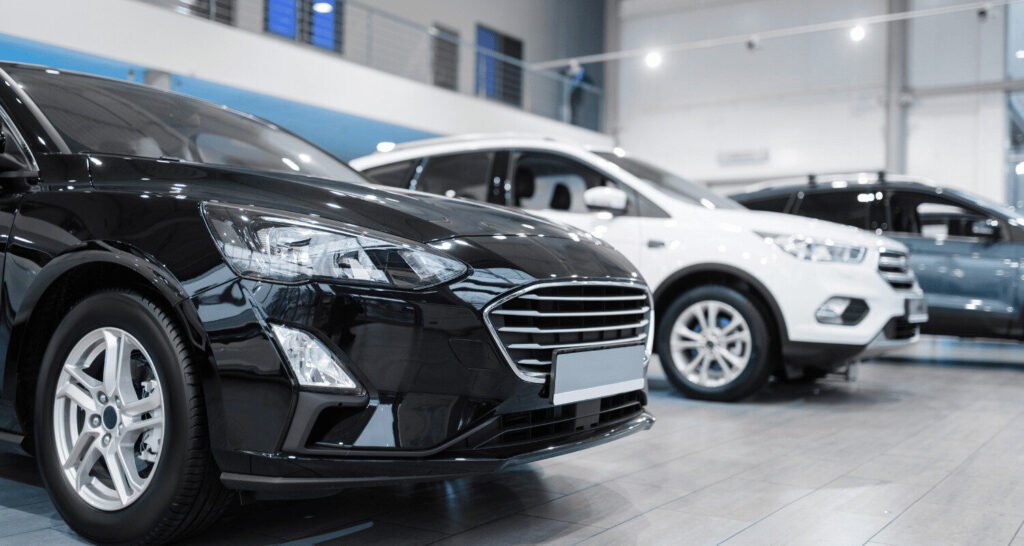
Buying a car is a big deal. Whether it’s your first car or your fifth, you want to make the right choice. A shiny car can still hide problems. So, don’t rush. Take your time and check everything. This guide will show you what things to look for before buying a Car — used or new.
Start with the Car’s History
The first thing to check is the car’s background. Don’t just go by looks. Ask for a vehicle history report. This will tell you if the car has:
- Been in an accident
- Had flood or fire damage
- Had the title marked as salvage
- Odometer issues
- Multiple owners in a short time
If the seller won’t give you the report, that’s a red flag. Walk away.
Sites like Carfax or AutoCheck can give you this info. You’ll need the car’s VIN number to run the report.
Do a Visual Check
Once the history looks clean, inspect the car in person. You don’t need to be a mechanic to spot trouble.
Look for:
- Rust: Check the bottom of the doors, under the wheel wells, and around the trunk.
- Dents and scratches: Small ones are normal, but many can show rough use.
- Uneven gaps: If doors or panels don’t line up, the car may have been in a wreck.
- Tires: Check for even wear. Uneven wear could mean bad alignment or suspension issues.
Check Under the Hood
Open the hood and look at the engine. Again, you don’t need to be an expert.
- Oil: Pull the dipstick. Oil should be clean, not black or gritty.
- Coolant: It should be green or orange, not rusty or dirty.
- Leaks: Look for oil spots or wet areas around the engine.
- Battery: Check for corrosion around the terminals.
If anything smells burnt or looks off, ask questions. Better yet, have a mechanic look.
Review Maintenance Records
Ask for service or maintenance records. These can tell you if the car was taken care of.
Look for:
- Regular oil changes
- Brake service
- Tire rotations
- Timing belt replacement (if the car has one)
A car with no records may have skipped important work. You might be the one who ends up paying for that.
Test Drive the Car

Never buy a car without a test drive. This is one of the most important checks you can do.
During the drive:
- Listen for strange sounds
- Check the brakes — they should be firm, not soft or noisy
- Make sure the steering feels straight
- See how the transmission shifts (it should be smooth)
- Test the heat and AC
- Drive at different speeds — including on the highway
Don’t rush this step. Take at least 15–20 minutes if you can.
Inspect the Interior
Sit in the car and look around. You’ll spend a lot of time inside, so make sure it’s right.
- Seats: Are they torn, stained, or too worn down?
- Carpet: Check for water stains (could mean flood damage)
- Dashboard: Are there any warning lights? They should go off after you start the car.
- Windows and locks: Test every button and switch.
- Odor: A strong smell could mean mold, smoke, or pets.
Ask About the Title
You want a clean title. That means the car has not been totaled or labeled as salvage.
Ask to see the title. Make sure the name on it matches the seller. If they don’t have the title in hand, ask why. Be careful with “title in transit” or other excuses. It could be a bad sign.
Look Under the Car
Yes, get on the ground and look. Use a flashlight if needed.
- Check for fresh drips or puddles
- Look at the exhaust pipe — heavy rust is bad
- See if anything looks new (could mean a recent repair after damage)
A clean car underneath is a good sign.
Use a Mechanic for a Pre-Purchase Inspection
This might cost you $100–$150, but it can save you thousands. A trusted mechanic will do a pre-purchase car inspection and spot things you missed.
This is very important when buying a used car. If the seller refuses to let you take the car to a mechanic, walk away.
Check the Price
Once the car checks out, make sure the price is fair. Look at Kelley Blue Book (KBB), NADA, or other car pricing sites.
Compare the seller’s price to:
- Other local listings for the same year and model
- The car’s condition, mileage, and features
- Any needed repairs or missing items (like extra keys or floor mats)
If the price is too high, you now have a reason to negotiate.
Read More: 12 Tips for Negotiating the Best Deal on a Car
Ask These Questions Before You Buy
- How long have you owned the car?
- Why are you selling it?
- Any major repairs or recent issues?
- Has the car ever been in a crash?
- Are there any current problems I should know about?
The answers will help you decide if the seller is honest or just trying to make a fast sale.
FAQs – Things to Look for Before Buying a Car
Q1: What should I check before buying a used car?
Check the exterior, tires, engine, brakes, interior, and undercarriage. Also, take it for a test drive and review the car’s history.
Q2: Is a vehicle history report necessary?
Yes. It shows you past problems like crashes, flood damage, or title issues. Always ask for it.
Q3: Should I get a mechanic to inspect the car?
Yes, especially for used cars. A mechanic can find problems that you can’t see.
Q4: How do I know if the car is priced fairly?
Use online tools like Kelley Blue Book to compare it with similar cars in your area.
Come See the Cars at Cigar City Auto Brokers
We check our cars before we sell them. No games, no hidden problems. At Cigar City Auto Brokers, you can take your time, ask questions, and even bring your own mechanic. We want you to feel sure before you buy.
Stop by or give us a call — we’ll make it easy.
Final Thoughts
Don’t let a bad car ruin your plans. Take your time. Check everything. Ask questions. Get the facts. Whether you’re buying from a dealer or private seller, being careful now can save you a lot later.
If you’re looking for a clean, checked, and fairly priced vehicle — visit Cigar City Auto Brokers today. We’re ready when you are.
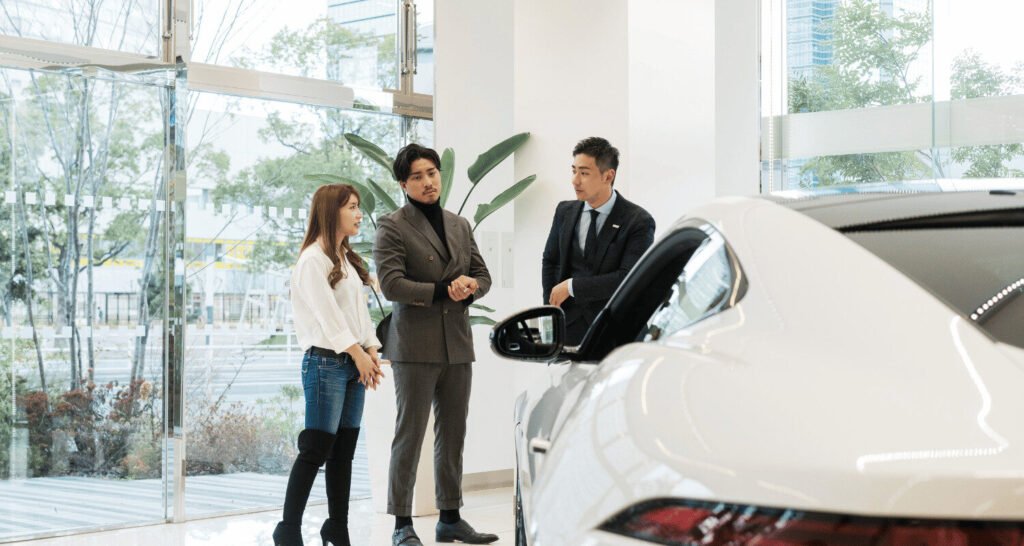
Buying a car can be exciting. But overpaying for one? Not so much. Whether you’re buying a new car or a used car, knowing how to negotiate can save you real money. If you want to feel good about your deal, you need to come prepared. These 12 tips for negotiating the best deal on car help you with confidence and avoid common mistakes.
1. Do Your Homework
Know what the car is worth before you even leave the house. Look up prices online using sites like Kelley Blue Book or Edmunds. Compare listings. This helps you spot inflated prices and gives you a solid number to work with during car negotiation.
2. Get Pre-Approved for a Loan
Go to your bank or credit union first. Get pre-approved for an auto loan before you talk to the dealer. This way, you know your budget and won’t be stuck with high-interest dealer financing. If they offer you a better rate later, that’s just a bonus.
3. Don’t Shop in a Hurry
Give yourself time. Don’t buy a car the same day you start looking. Test drive several cars. Visit more than one lot. The more options you have, the more power you have to negotiate. Rushing leads to bad decisions.
4. Know the Best Time to Buy
There’s a right time to buy a car. Dealers often give better deals at the end of the month or year, when they’re trying to meet quotas. Holiday weekends and model year-end sales are also good times to shop.
5. Focus on Total Price, Not Monthly Payments
Don’t get tricked by the “low monthly payment” pitch. Dealers can stretch out your loan to make payments seem smaller, while adding more interest and fees. Instead, negotiate based on the total out-the-door price of the car.
6. Visit Multiple Dealerships
Prices can vary a lot from one dealer to another. Visit at least two or three places. Even if you like the first one, get another quote. You can use it as leverage to get a better deal somewhere else. Cigar City Auto Brokers, for example, welcomes price comparisons and aims to beat them.
7. Leave the Trade-In Out (At First)
If you’re trading in a car, don’t mention it until you’ve locked in the price of the car you’re buying. Dealers often mix numbers to make a deal seem better than it is. Handle the trade-in as a separate deal so things stay clean and simple.
8. Know What Your Trade-In Is Worth
Use sites like NADA and KBB to get your car’s trade-in value. Dealers may offer less than it’s worth. But if you know the fair value, you can stand your ground and ask for more. Also, get quotes from places like CarMax for comparison.
9. Be Ready to Walk Away
This is the strongest move in your toolkit. If you’re not getting a deal you like, leave. Politely say, “I need to think about it.” Often, a better offer comes out right as you walk. If not, you just avoided a bad deal. Win either way.
10. Don’t Get Talked Into Extras You Don’t Need
When you sit down to sign papers, expect the finance office to pitch add-ons: extended warranties, paint protection, VIN etching, gap insurance. Some might be useful. Most are overpriced. Say no unless it’s something you’ve already decided you want.
11. Be Calm and Confident
You don’t have to be pushy. Just be firm and clear. Say what you want, and stick to it. The salesperson is doing their job, and so are you. Keep your cool, ask clear questions, and take your time before agreeing to anything.
12. Get the Deal in Writing
Don’t shake hands and assume it’s done. Ask for everything in writing: the car price, loan rate, trade-in value, fees, and any extras. Read the fine print. If something’s not right, speak up. Don’t sign until everything looks good.
Extra Tips for Buying New vs. Used Cars
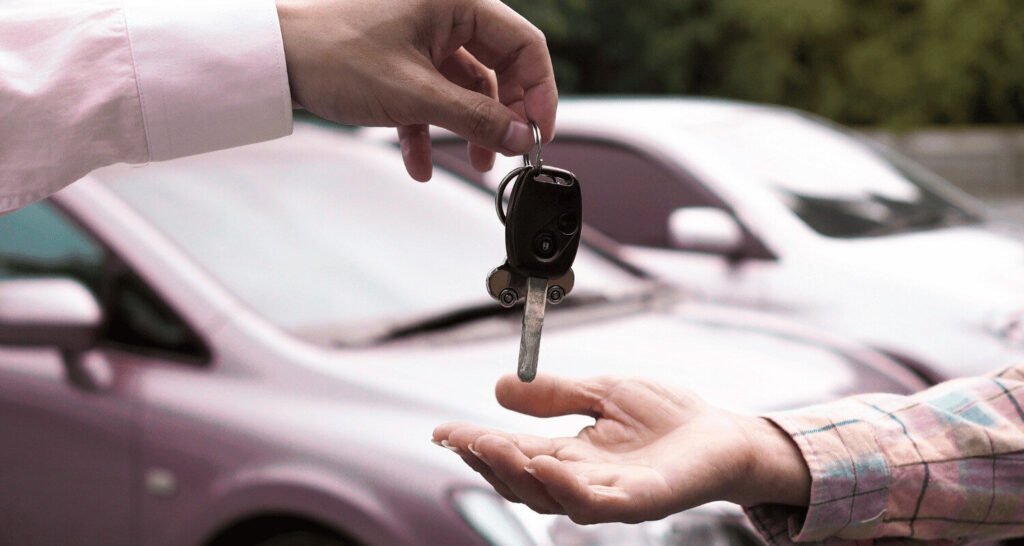
New car:
Try to find out the invoice price — that’s what the dealer paid. You may not get that low, but getting close is a win.
Used car:
Ask for the vehicle history report (like Carfax). Get the car checked by a mechanic. Don’t skip this step just to save time.
Read More: Leasing Vs Buying
Watch Out for These Dealer Tricks
Here are a few common tricks to avoid:
- Bait-and-switch: They advertise a great price, but the car is “already sold.”
- Packing extras into payments: The monthly number looks fine, but it includes hidden add-ons.
- Lowball trade-in offer: They tell you your car’s worth less than it is to bump their profit.
Stay alert. Ask questions. Never feel rushed.
FAQs – Tips for Negotiating the Best Deal on Car
When is the best time to negotiate a car deal?
End of the month, quarter, or year. Dealers have sales goals and may be more flexible then.
Should I tell the dealer I’m paying cash?
Not at first. Wait until after you’ve agreed on the price. Some dealers make more money on financing, and knowing you’re paying cash early can reduce your negotiating edge.
How much can I negotiate off a car’s price?
It depends. On new cars, 5–10% off MSRP is common. Used cars often have more wiggle room, especially if they’ve been on the lot a while.
Should I negotiate before or after the test drive?
After. You may find things during the drive that help with negotiation. Plus, it shows you’re serious.
Let Cigar City Auto Brokers Help You Out
At Cigar City Auto Brokers, we don’t play games with pricing. We’re upfront, transparent, and ready to work with your budget. Whether you’re buying a new car or a used one, we aim to give you the deal you deserve — without pressure or nonsense.
Call or stop by today to speak with a real person who will treat you like one.
Wrap-Up
Buying a car doesn’t have to be hard. You don’t need fancy words or insider tricks. You just need to be prepared. Know what the car’s worth, take your time, and be willing to walk. Stick to these 12 simple steps, and you’ll be in a much better spot when it’s time to sign the papers.
If you want a fair deal with zero stress, check out Cigar City Auto Brokers. We’ll help you get behind the wheel without the headache.
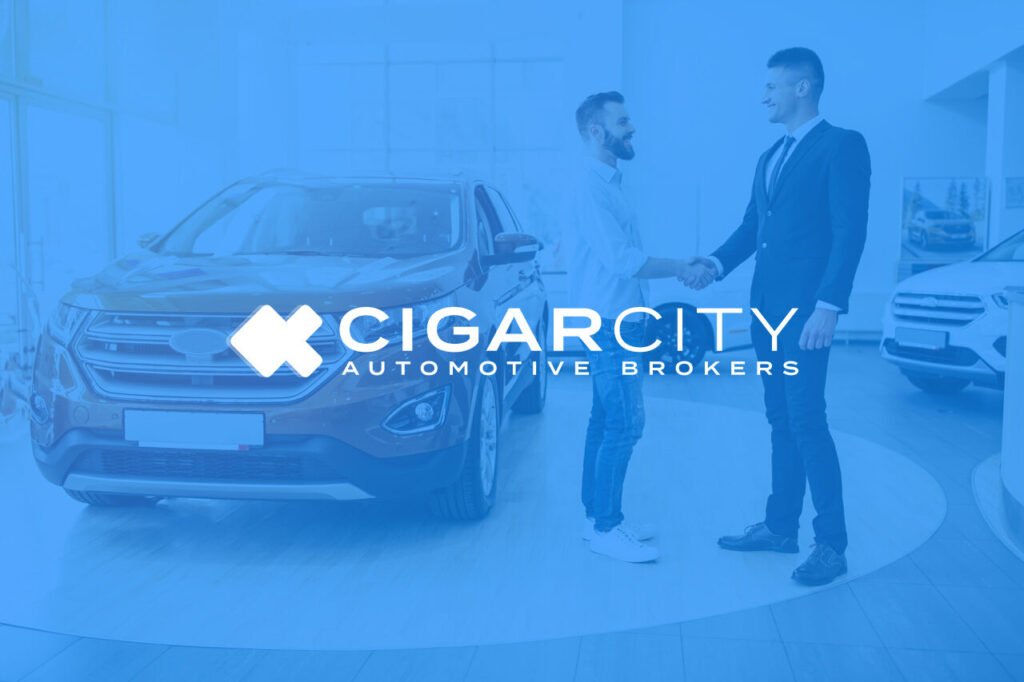
Introduction: At Cigar City Automotive Brokers, our mission is to make your car-buying journey efficient and enjoyable. Here’s how our streamlined process works:
Step 1: Initial Consultation. We discuss your preferences, budget, and requirements to understand your ideal vehicle.
Step 2: Market Research Leveraging our extensive network, we identify vehicles that match your criteria.
Step 3: Evaluation and Selection. We present you with a curated list of options, highlighting the pros and cons of each.
Step 4: Negotiation Our experts negotiate on your behalf to secure the best possible deal.
Step 5: Finalization and Delivery. We handle all paperwork and logistics, ensuring a smooth handover of your new vehicle.
Conclusion: Our comprehensive approach ensures you receive a vehicle that meets your needs without the typical dealership stress.

Introduction: While dealerships are a traditional avenue for purchasing vehicles, they often come with hidden costs that can inflate the final price. Understanding these pitfalls is crucial to making a financially sound decision.
Common Hidden Costs:
- Dealer Markups: Additional charges added to the manufacturer’s suggested retail price (MSRP).
- Unnecessary Add-Ons: Services or products bundled into the deal that may not be essential.
- Extended Warranties: Often presented as mandatory, these can significantly increase the overall cost.
- Financing Traps: Higher interest rates or unfavorable loan terms that benefit the dealer more than the buyer.
How Ciger City Automotive Brokers Mitigate These Costs:
- Transparent Pricing: We provide clear breakdowns of all costs involved.
- Tailored Recommendations: Only suggesting add-ons that align with your needs.
- Competitive Financing Options: Leveraging our network to secure favorable loan terms.
Conclusion: By partnering with Cigar City Automotive Brokers, you sidestep the hidden fees and enjoy a straightforward, honest car-buying experience.
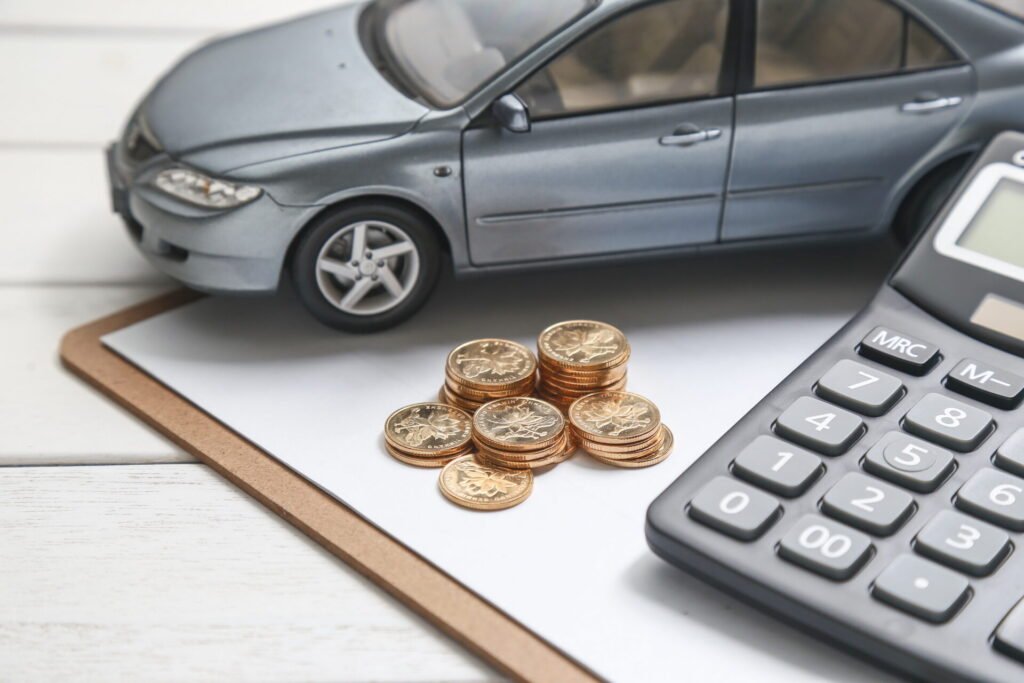
Introduction: While dealerships are a traditional avenue for purchasing vehicles, they often come with hidden costs that can inflate the final price. Understanding these pitfalls is crucial to making a financially sound decision.
Common Hidden Costs:
- Dealer Markups: Additional charges added to the manufacturer’s suggested retail price (MSRP).
- Unnecessary Add-Ons: Services or products bundled into the deal that may not be essential.
- Extended Warranties: Often presented as mandatory, these can significantly increase the overall cost.
- Financing Traps: Higher interest rates or unfavorable loan terms that benefit the dealer more than the buyer.
How Ciger City Automotive Brokers Mitigate These Costs:
- Transparent Pricing: We provide clear breakdowns of all costs involved.
- Tailored Recommendations: Only suggesting add-ons that align with your needs.
- Competitive Financing Options: Leveraging our network to secure favorable loan terms.
Conclusion: By partnering with Cigar City Automotive Brokers, you sidestep the hidden fees and enjoy a straightforward, honest car-buying experience.
Deals
Exclusive Vehicle Deals
Access special pricing arrangements and limited-time offers not available to the general public.

Land Rover
SV
3.99% up to 72 mo OR up to $3500 in Purchase Allowances + Bonus Cash

Bentley
GT Speed
3.99% up to 72 mo OR up to $3500 in Purchase Allowances + Bonus Cash

Connect
Let's Talk About
Your Next Car
Ready to skip the dealership stress? Tell us what you’re looking for, and our experts will reach out within 2 hours.






